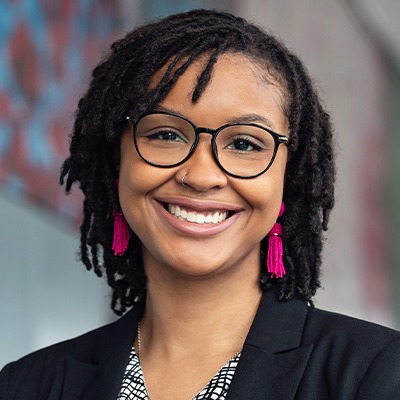Chelsey Spriggs, Ph.D.


Chelsey Spriggs was raised in Detroit, Michigan, and credits her path into science to the encouragement and mentorship of amazing teachers in the Detroit Public School System and at Michigan State University, where she received her B.S. microbiology. She earned her Ph.D. from Northwestern University, where she studied the role of DNA damage response pathways in human papillomavirus replication and transformation in the lab of Laimonis Laimins, Ph.D.
For her postdoctoral studies, Spriggs joined the lab of Billy Tsai, PH.D., in the Department of Cell and Developmental Biology at the University of Michigan Medical School to research the mechanism by which the simian virus 40 (SV40) polyomavirus is disassembled and trafficked to the nucleus to cause infection.
Intrigued by the role of viruses in causing (and potentially treating) cancer, Spriggs now runs her own research lab studying DNA tumor virus entry. She is currently a tenure-track assistant professor at in the Department of Cell and Developmental Biology with a joint appointment in the Department of Microbiology and Immunology and a research assistant professor at the U-M Life Sciences Institute. She is an inaugural MOSAIC K99/R00 scholar, Burroughs Wellcome Fund Postdoctoral Enrichment Program fellow and member of U-M's Biomedical Sciences Scholars Program.
In addition to virus research, Spriggs is passionate about improving diversity, equity and inclusion in STEM. Having grown up in the inner city, with little exposure to scientific research outside of the local science fair, she understands the importance of outreach and representation to the recruitment and retention of diverse scientists. As such, she is the co-founder of the Black Microbiologists Association, a non-profit organization created to showcase and amplify the voices of Black microbiologists across the globe and volunteers broadly speaking with high school and college students about careers in science. She is a recipient of the U-M Office of Health Equity and Inclusion Faculty Diversity Fund Award and was featured in Cell Mentor’s list of 1,000 Inspiring Black Scientists in America.